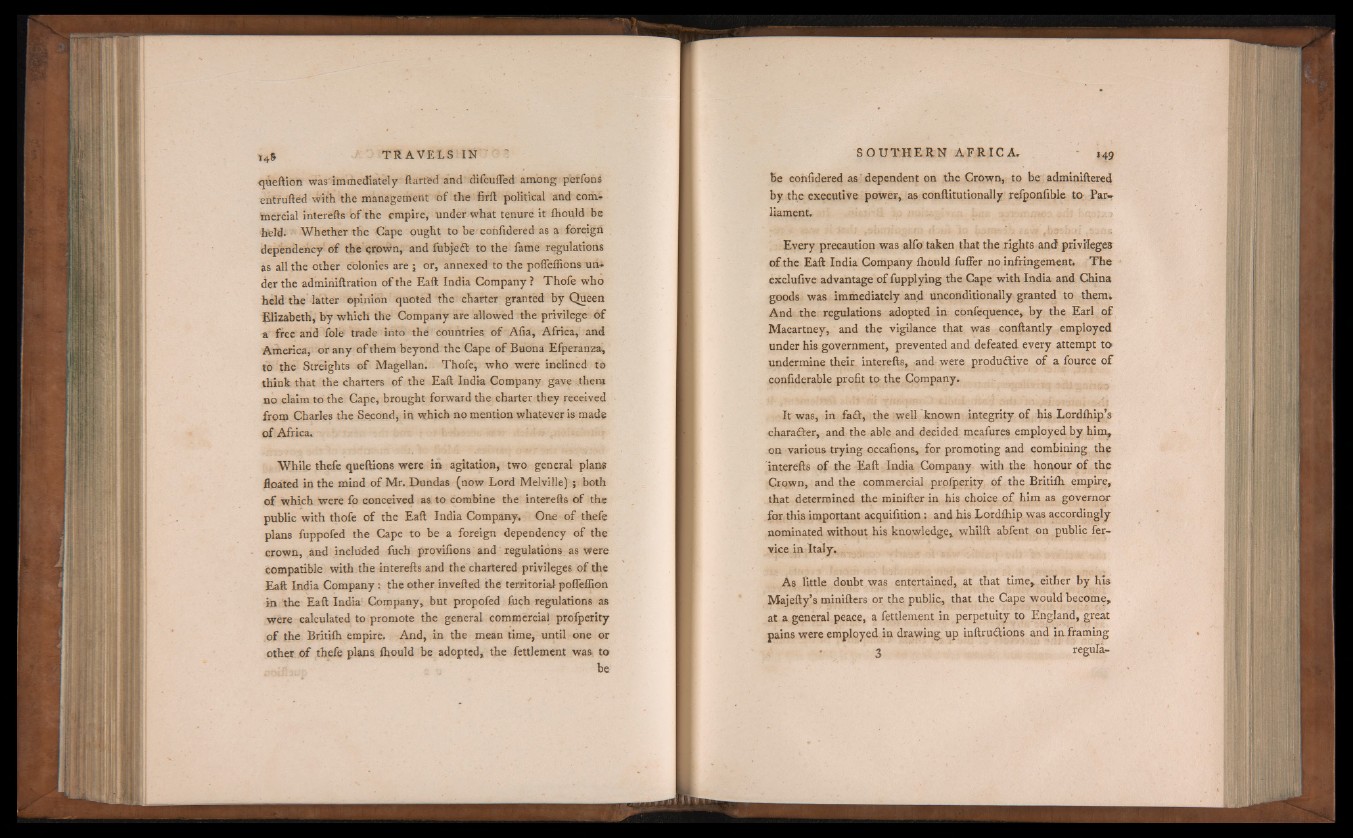
queftion was'immediately darted and difcufled among perfons
entrufted with the management of the firft political and commercial
interefts of the empire, under what tenure it fhould be
held. Whether the Cape ought to be confidered as a foreign
dependency of the grown, and fubjed to the fame regulations
as all the other colonies are ; or, annexed to the poffeffions under
the adminiftration of the Eaft India Company ? Thofe who
held the latter opinion quoted the charter granted by Queen
Elizabeth, by which the Company are allowed the privilege of
a free and foie trade into the countries of Afia, Africa, and
America, or any of them beyond the Cape of Buona Efperanza,
to the Streights of Magellan. Thofe, who were inclined to
think that the charters of the Eaft India Company gave them
no claim to the Cape, brought forward the charter they received
from Charles the Second, in which no mention whatever is made
of Africa.
While thefe queftions were in agitation, two general plans
floated in the mind of Mr. Dundas (now Lord Melville) ; both
of which were fo conceived as to combine the interefts of the
public with thofe of the Eaft India Company. One of thefe
plans fuppofed the Cape to be a foreign dependency of the
crown, and included fuch provifions and regulations as were
compatible with the interefts and the chartered privileges of the
Eaft India Company ; the other invefted the territorial pofleiflon
in the Eaft India Company, but propofed fuch regulations as
were calculated to promote the general commercial profperity
of the Britiih empire. And, in the mean time, until one or
other of thefe plans ihould be adopted, the fettlement was to
be
be cohfidered as dependent on the Crown, to be adminiftered
by the executive power, as conftitutionally refponfible to Parliament.
Every precaution was alfo taken that the rights and privileges
of the Eaft India Company ihould fuffer no infringement. The
exclufive advantage of fupplying the Cape with India and China
goods was immediately and unconditionally granted to them.
And the regulations adopted in confequenee, by the Earl of
Macartney, and the vigilance that was conftantly employed
under his government, prevented and defeated every attempt to
undermine their interefts, and were produdive of a fource of
confiderable profit to the Company.
It was, in fad, the well known integrity of his Lordihip’s
charader, and the able and decided meafures employed by him,
on various trying occafions, for promoting and combining the
interefts of the Eaft India Company with the honour of the
Crown, and the commercial profperity of the Britiih empire,
that determined the minifter in his choice of him as governor
for this important acquifition : and his Lordihip was accordingly
nominated without his knowledge, whilft abfent on public fer-
vice in Italy.
As little doubt was entertained, at that time, either by his
Majefty’s minifters or the public, that the Cape would become,
at a general peace, a fettlement in perpetuity to England, great
pains were employed in drawing up inftrudions and in framing
3 regula